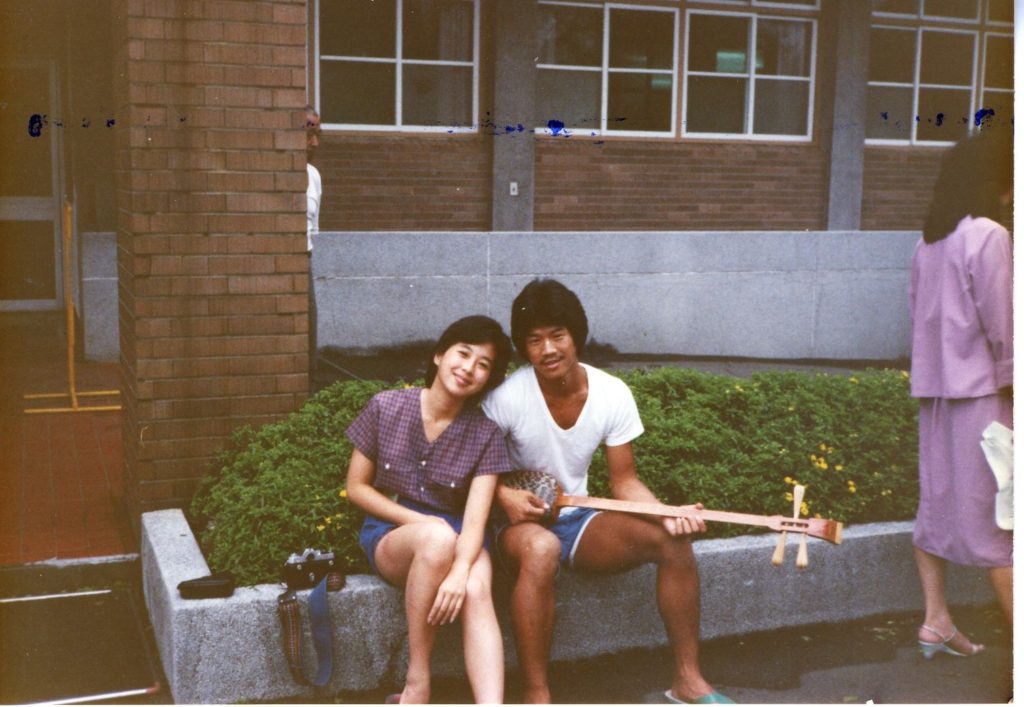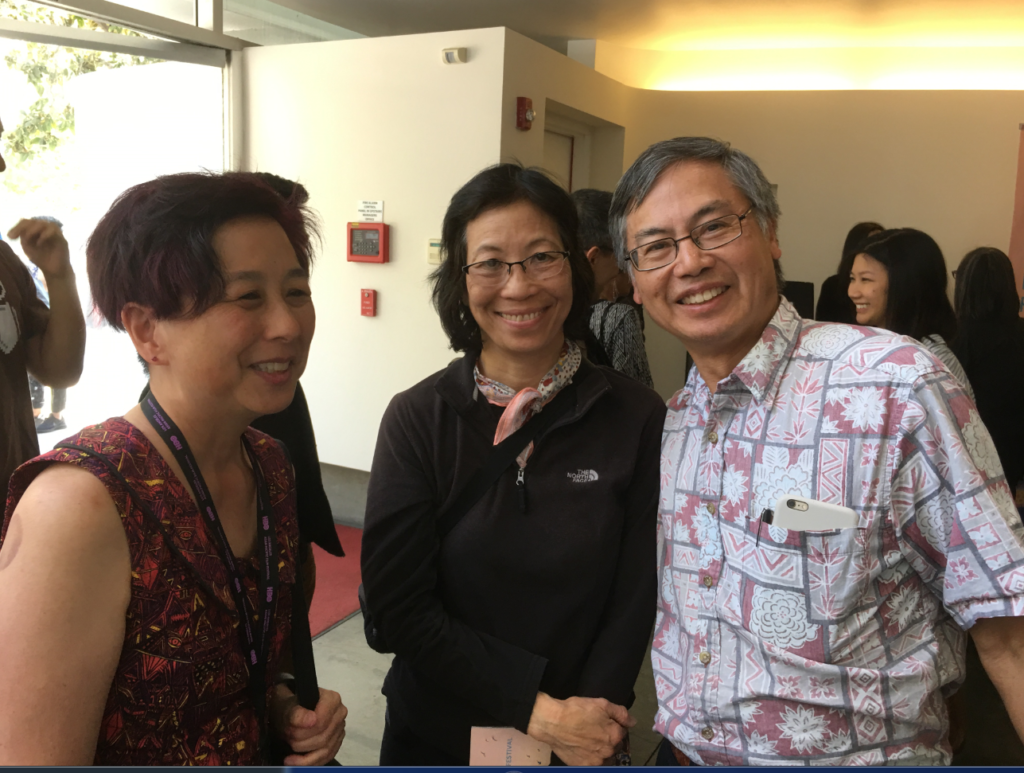
By Louis Chan, AsAmNews National Correspondent
Diane Wu fondly remembers the summer in Taiwan in 1979 when she looked up on stage and saw her future husband, Bernie.
Frank Cheung vividly recalls that same summer when he met his future wife for the first time escorted by her dad at a Taiwanese disco.
All four , Diane and Bernie Wu and Frank and Ellen Cheung, were attending the Overseas Chinese Youth Language Training and Study Tour-more commonly known in the Chinese community as the Love Boat.
The program, which attracted thousands of Chinese youth from primarily the United States and Canada, is the focus of a new documentary from Valerie Soe entitled Love Boat Taiwan. Its next voyage is tomorrow and Saturday at CAAMFEST in San Francisco.
Soe interviewed dozens of former participants and organizers of the program to paint a colorful picture of a cultural exchange program perhaps better known for pairing up couples than teaching language and culture. The program launched in 1966 and continues today.
For the record, Diane, Bernie, Frank and Ellen were not interviewed for the documentary, but happen to be personal friends of mine. I only mention that to illustrate how widely known the Love Boat is in the Chinese community.
“I thought it was really interesting how it was such a phenomenon within the Chinese American and Taiwanese American communities but somewhat invisible to those outside of those communities,” said Soe to AsAmNews. “The Love Boat had gone through a lot of changes so it was interesting to trace the program from its start all the way up to the present day.”
Imagine any type of overseas youth program and you can envision lots of drinking and partying. That was part of the Love Boat which is well documented in Soe’s film. Lifelong friendships and memories were also formed and its not uncommon to hear about organized Love Boat reunions around the country.
At its peak, the Love Boat attracted thousands of participants each summer. Today participation has declined to the hundreds.
Among those participants is Soe herself who attended in 1982. She included herself in the film.
“I didn’t want to do a standard narration or voice over,” she said. “I also thought it would be fun to show that the program affected me so much that I actually ended up making a film about it.”
Many attribute the decline of the Love Boat to the decline in power of the Kuomintang. Voters removed the KMT from power in 2000. It was also at that time that the economy of Taiwan slowed, making running the program perhaps cost prohibitive.
“The Love Boat might not have seemed to make economic sense at that time. And some folks say it’s because the program got to be too rowdy and out of control, but I’m not sure how it could have been more rowdy than it was during its heyday in the 80s & 90s,” said Soe.

Bernie Wu recalls the bonding among the participants.
“I think there is a natural affinity between ABC’s(American Born Chinese)– we’re not 100% Chinese, nor 100% “American”. For many of us we’re traveling together, experiencing something new and different together for 6 weeks– and we hang out closer because we are in a foreign country/not fluent,” he said.
Bernie’s wife Diane also said it was a time of personal freedom.
“As with many of the people on the trip, this was a new stage of life,” she said. “It was the most perfect setup! We were free to do as we pleased. We met other people who liked to travel, with a sense of adventure. They were from other countries, towns, and with different interests. Stir that up and it was the perfect mix to launch the Love Boat. I certainly had no intention of finding Mr. Right on that trip. I hadn’t even heard the label yet.”
Frank Cheung who also attended in 1979 would like to see the program replicated in other countries. He said for many its the first time traveling overseas. It offered a great stress relief from years in college. Most importantly he said it was “an opportunity to learn about ourselves” before entering the real working world.
” They should have similar programs in other countries,” he said.
“It was such an important rite of passage for Taiwanese and Chinese Americans for so long that it’s too bad that it doesn’t exist as it did in its earlier days,” said Soe in conclusion. “It influenced so many people and introduced them to Taiwan and Taiwanese culture for the first time. People still ask me if the program is still around because they want to send their kids on it!”
AsAmNews has Asian America in its heart. We’re an all-volunteer effort of dedicated staff and interns. Check out our Twitter feed and Facebook page for more content. Please consider interning, joining our staff or submitting a story
